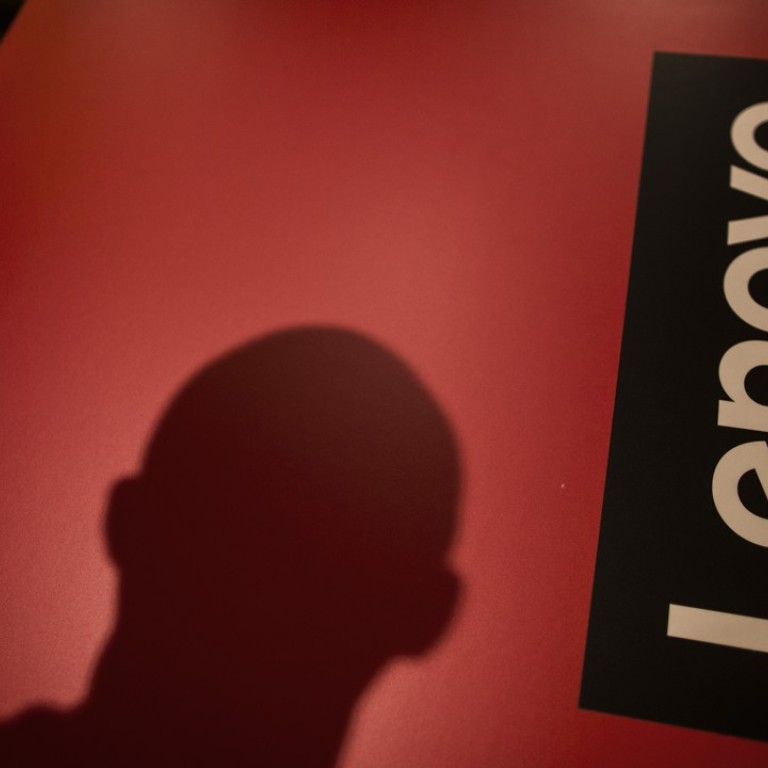
Breaking | Chinese hardware makers slammed by ‘chip hack’ report, Lenovo loses HK$11 billion in Hong Kong
Chinese computer maker Lenovo Group lost HK$10.8 billion in market value on Friday in Hong Kong, following a report by Bloomberg that China had used tiny microchips to infiltrate about 30 companies in the United States, including Apple and Amazon.
Chinese telecoms equipment maker ZTE Group was also among the decliners.
Lenovo, which is headquartered in Hong Kong and runs an operational centre and several research centres in mainland China, fell 15.10 per cent to HK$5.06 at the close, after crashing by as much as 22.8 per cent in early morning trade. The decline came after Bloomberg reported data centre equipment used by Amazon Web Services and Apple may have been subject to surveillance by the Chinese government, via microchips inserted during the manufacturing process.
Lenovo chief says US and China need each other, globalisation won’t reverse course
Bloomberg said the chips may have been introduced by San Jose, California-based company Super Micro Computer, which is one of the world’s biggest suppliers of server motherboards and assembled the machines used in the data centres. Lenovo, however, told the South China Morning Post: “Super Micro is not a supplier to Lenovo in any capacity. Furthermore, as a global company we take extensive steps to protect the ongoing integrity of our supply chain.”
Castor Pang Wai-sun, head of research at financial services company Core Pacific-Yamaichi Financial Group, said: “The suspected infiltration of chips on the server seems to be the major reason for the drop in the share price.
“Whether this news is real or fake is questionable. If it is the case, then government procurement from other regions like Europe, the US and Dubai, of Lenovo servers, will drop substantially because of national security concerns.”
Lenovo bought IBM’s personal computer business in 2004. More than 30 per cent of its total revenue came from the Americas for the year ending March 31, 2018; 44 per cent came from Europe, Middle East and Africa and Asia-Pacific, according to its annual report. In comparison, 25 per cent came from China.
While no Chinese technology companies were named in the Bloomberg report, it has fuelled security concerns in the whole sector, and could hit Chinese firms’ business with overseas clients in the future, according to traders.
Chinese computer maker Lenovo Group kicked out of Hang Seng Index, again
Lenovo’s bond price dropped sharply on its 5.375 per cent subordinated perpetual debt with the yield surging by 21 basis points to 9.2 per cent on Friday.
Elsewhere, ZTE, the world’s fourth largest telecoms network equipment maker and the fourth biggest smartphone vendor in the US, declined by 10.99 per cent to HK$12.64 after falling by as much as 14.1 per cent earlier.
The company declined to comment on the stock movement.
Amazon and Apple have denied the Bloomberg report, but two of the iPhone maker’s Chinese suppliers, AAC Technologies Holdings and Sunny Optical Technology (Group), declined on Friday, dropping by 2.19 per cent to HK$78.30 and by 2.5 per cent to HK$81.90, respectively.
In Taipei, industry peer Taiwanese computer maker Acer declined by 5.35 per cent to NT$23.00, reflecting its lowest price since August.
Meet the legal watchdog who’s keeping ZTE in line with US export control laws
Stephen Innes, Asia -Pacific head of trading at online currency broker Oanda, said the Bloomberg report would further complicate relations between Washington and Beijing, especially in the wake of recent comments by US President Donald Trump that China was meddling in the US midterm elections.
US technology companies that have extensive trade relations with China could be at higher risk of falling prey to the escalating trade war between Washington and Beijing, Innes added.
In August, the Trump Administration lifted a ban on selling key American technology components to ZTE after it was accused of breaching US sanctions against North Korea and Iran. The Chinese company resumed normal operations after paying a US$1.4 billion fine to settle the matter.



